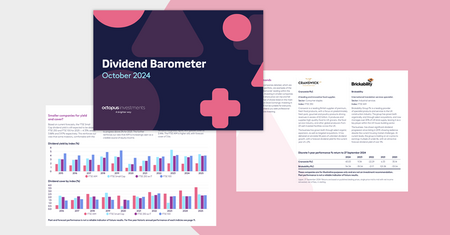GuideBusiness Relief
Helping to untangle inheritance tax
A guide to untangling inheritance tax
If you thought inheritance tax was just for extremely wealthy people to worry about, think again. Recent reforms to inheritance tax and rising property prices in recent years have meant more estates than ever are likely to face an inheritance tax bill. In fact, the amount of inheritance tax collected is expected to reach £9 billion by 2027-28, an increase of £1.5 billion in just three years.1 As pensions will be subject to inheritance tax (IHT) from April 2027, this number is expected to be even higher.
If your estate has an inheritance tax liability, your beneficiaries will have to pay the inheritance tax bill. This may not be the kind of legacy most people think of leaving behind.
The good news is that there are plenty of things you can do – in your lifetime – to take care of a potential inheritance tax problem. But finding the right options for you will depend on your personal circumstances. In this guide, we set out some of your options in more detail to help you make an informed choice.
Estate planning can be complicated. But it doesn’t have to be. Talking to a financial adviser about your situation can make a real difference. At Octopus, our experience is that too many people are leaving their loved ones with a large and unnecessary tax bill to pay. We hope this guide can help you take the initiative.
1 Office for National Statistics and Office for Budget Responsibility, July 2024.
2 HMRC tax receipts and National Insurance contributions for the UK: statistics table, HMRC, 19 July 2024.
Inheritance tax: the basics
Inheritance tax: the basics
What is inheritance tax?
Inheritance tax is paid on the value of the assets that a person leaves behind when they die. It can also apply to some gifts that are made before someone dies.
What is an estate?
When you die, your ‘estate’ is the assets you leave behind. If you are married, or have a civil partner, then you can leave your entire estate to your spouse or partner free of inheritance tax. But if you want to leave some or all of your estate to family and friends, then it may be liable for inheritance tax.
What’s the threshold for inheritance tax?
Not everyone is required to pay inheritance tax, but if your estate’s value is worth more than £325,000 (known as the ‘nil-rate band’), then HMRC will expect you to pay inheritance tax at a rate of 40%1 on the total value of assets in your estate over that amount.
You can reduce the rate of inheritance tax payable from 40% to 36% if you leave at least 10% of the value of your estate to charity. Donations made to charity upon your death are not subject to inheritance tax.
What assets are included in an estate?
Your estate can include:
- Your house and any other properties you own.
- Any savings or investments (ISAs are taxable).
- Any other assets.
- The value of any life insurance policies in your name.
- From 6 April 2027 pensions.
How to work out what your estate is worth
After adding up all your assets and certain gifts made in the seven years before death, your next step should be to subtract any outstanding debts. These could include credit cards, loans and mortgages. You can exclude the value of some gifts you make during your lifetime (jump to the explanation of the gifting rules), charity donations left in your will and the reasonable costs of your funeral.
After calculating the potential value of your estate for inheritance tax purposes:
Is the potential value of your estate less than £325,000?
Your estate isn’t facing an inheritance tax bill right now. However, it’s worth keeping an eye on the value of your assets, as any changes between now and when you die could mean an inheritance tax bill for some of the assets you leave behind.
Is the potential value of your estate more than £325,000?
Then your nil rate band will be fully used up, and the remainder of your estate will be subject to inheritance tax.
Modern inheritance tax dates back to 1894, when the government introduced ‘estate duty’ as a tax on the capital value of land.
1Note: You can reduce the rate of inheritance tax payable from 40% to 36% if you leave at least 10% of the value of your estate to charity. Donations made to charity upon your death are not subject to inheritance tax.
How marital status affects inheritance tax
How marital status affects inheritance tax
How the inheritance tax rules apply will differ depending on whether you are single, married or in a civil partnership.
Single
If you’re single and your estate is worth more than £325,000, anything over that amount will be liable for up to 40% inheritance tax.
Married/civil partnership
If you’re married or in a civil partnership, the assets you leave to your spouse will be transferred without any inheritance tax to pay. Also, leaving assets to a spouse does not use up your nil rate band.
If you pass on any of your estate to someone other than your spouse or civil partner, and your estate is valued at more than £325,000, then the excess will be subject to up to 40% inheritance tax.
The estate of your surviving spouse, now widowed, will be subject to inheritance tax as outlined below.
Widowed
When someone dies, their unused nil-rate band can be transferred to their spouse or civil partner.
For example, if your spouse left everything to you before they died, you could potentially have a combined nil-rate band of £650,000 applied to the value of your estate. Note: From 6 April 2026 everyone has a new Business Relief and Agricultural Property Relief (APR) £1 million allowance (we explain this further in the ‘How the Business Relief allowances work’ section further down). This allowance is not transferable to your surviving spouse.
Unmarried couple
If you are part of an unmarried couple, you are still treated as single for inheritance tax purposes.
This means that each of you has a separate nil-rate band of £325,000 which cannot be combined upon death.
Taking the next steps in untangling inheritance tax
Visit our inheritance tax post-Budget webpage
The residence nil-rate band
The residence nil rate band
A new inheritance tax allowance was introduced in 2015. But the headlines that claimed it will give people a £1 million nil-rate band need closer scrutiny.
Inheritance tax is a problem for homeowners
After years of rising house prices, more people are now facing an inheritance tax liability on their estate, thanks to the increase in the value of their home. What’s more, the current nil-rate band of £325,000 for inheritance tax is going to remain frozen until at least 2030.
In 2015, acknowledging the inheritance tax problem faced by large numbers of homeowners, the Government introduced an additional inheritance tax allowance of up to £175,000 to apply to the family home in certain circumstances. This allowance is also frozen until at least 2030. However, forecasts show that HMRC’s inheritance tax receipts are still expected to continue to rise.
The residence nil-rate band
- The residence nil-rate band applies to the estates of people who die after 6 April 2017.
- You must plan on leaving a home to your children or grandchildren.
- The allowance was phased in and reached the maximum of £175,000 per person for deaths that occur after 6 April 2020 (£350,000 per couple).
- Adding this to a couple’s nil-rate band equals £1 million per couple.
- The allowance is frozen at £175,000 until at least 2030.
Who can claim the new allowance?
The intention is that married couples and civil partners can pass on assets worth £1 million (the combined nil rate band and residence nil rate band allowances), including the family home, without paying any inheritance tax at all.
However, not everyone will benefit, and there are a few rules to be aware of:
- As the name suggests, this allowance will apply where the person who has died owned a property that was at one time their home.
- It will also only apply if the property is being left to the deceased’s direct descendants (children or grandchildren).
- It won’t help you if you don’t own a property. Also, anyone without direct descendants, or who wishes to leave their home to someone other than a direct descendant, cannot benefit.
- Anyone without a property worth at least £175,000 per person, or £350,000 per couple, will only partially benefit.
- The residence nil-rate band will be reduced by a rate of £1 for every £2 by which the estate exceeds £2 million. This means that larger estates may not benefit.
- Anyone who disposed of their property before 8 July 2015 – for example, because they are in residential care or living with their children – will not benefit from the new allowance at all.
What about spousal transfers?
The existing nil-rate band works so that if the first spouse or civil partner to pass away leaves their entire taxable estate to their surviving partner, then the estate of the second spouse can claim a total nil-rate band of £650,000 – double the individual nil-rate band.
In a similar way, the estate of the second spouse or civil partner to pass away will be entitled to claim double the residence nil-rate band applicable in the year of the second death, where their partner’s estate did not make such a claim. The maximum amount of the claim will still be limited to (a) the greater of the allowance at the time of the second death, and (b) the value of the home owned by the deceased.
Key points
The residence nil-rate band has been flagged as allowing couples to claim £1 million of inheritance tax exemption. However, to do this, the following criteria have to be met:
- One spouse must pass away after 6 April 2020, when the £1 million maximum is reached.
- The surviving partner must own a home worth more than £350,000 when they die.
- They must leave that home to their children or grandchildren.
- Their total estate must be worth less than £2 million; likewise for their deceased spouse.
Leaving pensions as part of your estate
Leaving pensions as part of your estate
Following the Autumn 2024 Budget, whether your pension is liable for inheritance tax depends on whether death occurs before or after 6 April 2027.
1. Your type of pension
Broadly speaking, aside from the State Pension, there are two types of pensions:
A ‘Defined Benefit’ pension
This means you’ll receive a fixed percentage of your final salary, payable to you over the remainder of your lifetime. However, the benefit of that income belongs to you, and sometimes to your spouse if they survive you. It cannot be left to anyone else in its current form after you die.
It might be possible to trade-in the value of the payments for a cash lump sum. However, this can be unattractive, and you must take financial advice before taking this option.
A ‘Defined Contribution’ pension
This means you’ve paid into your pension during your working years so that you have a pot of money accrued in your pension at retirement. You can choose to take up to 25% of this pot tax free and use the remainder to purchase an annuity. An annuity pays you an income for life, but – similar to a Defined Benefit pension – cannot usually be left to your beneficiaries after you die.
Since 2014, it has been more widely possible to ‘draw down’ on your lump-sum pension pot, and use it to provide you with an income instead of purchasing an annuity. This pot is likely to be able to be left to your beneficiaries if you haven’t drawn it completely when you pass away.
From 6 April 2027, unused “Defined Contribution” pensions are subject to inheritance tax. Note that spousal transfers of these pensions remain inheritance tax free.
2. The age at which you die
Your undrawn pension pot is free from inheritance tax where you die before 6 April 2027. If you die after this date, your undrawn pension should be subject to inheritance tax. Additional taxes will be payable by your beneficiaries when they draw down from the fund:
If you die before turning 75
Anyone who inherits your pension will not be required to pay income tax as they draw it down.
If you die after turning 75
The amount of income tax to be paid will be determined by the income tax status of whoever inherits the pension. They will have to pay income tax at their standard rate whenever they draw amounts out (the rates of tax are 20%, 40% and 45%).
Making gifts to reduce an estate’s value
Making gifts to reduce an estate’s value
You can always simply ‘gift’ your assets away. However, there are some pitfalls to be wary of.
Inheritance tax gifting exemptions
Some gifts are always inheritance tax free. For a start, any gifts between spouses or civil partners are free from inheritance tax. HMRC also gives you an annual gifting allowance of £3,000 every year. This is called the ‘annual exemption’. If you don’t use your full £3,000 annual exemption in one year, you can ‘carry over’ the remainder and use it the following year. However, you can only use this carry-over for one year.
You can also make small gifts (up to £250) to as many different people as you like, but you cannot use your annual exemption and your small gift exemption on the same person in the same year.
Wedding gifts are also free from inheritance tax, provided you keep to certain limits. You can make a wedding gift of up to £5,000 for your child, up to £2,500 for your grandchild, up to £2,500 as a gift to your spouse or civil-partner-to-be or up to £1,000 to anyone else. Of course, gifts between spouses are 100% exempt from inheritance tax.
Inheritance tax will not be paid on gifts made to charities, national museums, universities, the National Trust, political parties and some other institutions such as housing associations.
Gift out of surplus income
Gifts can be exempt from inheritance tax where they are the normal expenditure of the donor, made out of surplus income, and the donor is left with sufficient income to maintain their standard of living.
“Normal” expenditure for one person is not the same as it is for another. This means it will be highly dependent on the particular taxpayer/case. What is important for HMRC is that they would like to see a pattern of giving or an expected pattern of giving.
Where gifts fall within this exemption, they are immediately exempt from inheritance tax and do not use up the nil rate band.
While other gifts may be subject to inheritance tax
These are usually called ‘potentially exempt transfers’. They typically become free from inheritance tax provided the person making the gift survives for seven years after the gift is made. If the person who made the gift dies within seven years, the value of the gift will be included in their estate. The person receiving the gift will have to pay any inheritance tax due.
It’s worth noting that the rate of inheritance tax due reduces if the person making the gift survives between three and seven years (known as ‘taper relief’). However, as the nil-rate band is applied against gifts made in the last seven years first, taper relief will only help where gifts worth more than £325,000 have been given away in the seven years before death.
Inheritance tax taper relief table
| Time between making gift and death | Rate of taper relief |
|---|---|
| 0-3 years | No taper relief |
| 3-4 years | 20% |
| 4-5 years | 40% |
| 5-6 years | 60% |
| 6-7 years | 80% |
| Over 7 years | No inheritance tax due |
Keeping a record of gifts made during your lifetime
You’re not required to keep details of the gifts you make while you are alive, but it’s extremely helpful if you do. After you pass away, the executors who deal with your estate will have to account for any gifts you made during the last fourteen years of your lifetime. Keeping records will make this process much quicker.
Equity release schemes
In recent years, people have found most of the value of their estate tied up in their home and have turned to ‘equity release’ schemes as a way to unlock their capital. These schemes usually involve selling a percentage of the property and continuing to live there, or taking out a mortgage for the rest of your life. Both of these schemes directly reduce the value of your estate, as the money is repaid from the value of your home after you die.
The money can then be used as an income during retirement perhaps, or it can be used to make gifts, which would reduce the value of the taxable estate (provided you survive any gifts by seven years). After you die, the loan and any interest on the loan will be repaid from the value of the property. As the value of the property is reduced, any potential inheritance tax to be paid on the value of the estate will also be reduced, provided the proceeds have been spent. Equity release can work for some people, but it also carries considerable risks. Make sure you talk to your family and a financial adviser who specialises in equity release before making any commitment.
Key points
- As no one knows what the future might hold, or how much money you could need in the future, making gifts can be a drastic way of reducing inheritance tax liabilities. Anyone making gifts loses ownership and control of their wealth as soon as the gift is made.
- Seven years can be a long time to wait for inheritance tax exemption, especially if you are elderly or in poor health.
- It’s worth keeping records of any gifts you make during your lifetime in order to make life easier for whoever has to deal with your estate.
Setting up a trust
Setting up a trust
Trusts can be used to make sure that assets are given to beneficiaries in a timely and controlled manner, without incurring an inheritance tax bill.
People usually set up trusts as a way to make sure assets are kept in the family over generations. The biggest advantage of trusts is that they can be set up exactly to your own personal wishes.
There are several different types of trusts to meet different needs. For example:
- If you want to leave assets to children or grandchildren, but you don’t want them to have access to the assets until they’re a certain age.
- If you want to impose certain restrictions on how your estate is allocated to beneficiaries.
- If you want someone to receive an income from your assets during their life, but ultimately want the assets to be passed to someone else.
Understanding the limitations of trusts
Trusts offer much greater control as to where your money will go, but they can be complicated to set up. Additionally, since 2006, inheritance tax charges have applied when certain trusts are set up, and when assets are transferred out of the trust to the trust beneficiaries. This can make settling a significant amount into trusts less attractive. Assets settled into some kinds of trusts that are set up during your lifetime also take seven years before becoming exempt from inheritance tax, similar to making a gift directly to a beneficiary. If you die before then, the amounts settled into trust will be included in your estate, and inheritance tax will be payable if the estate is valued at more than the nil-rate band.
Different types of trusts
| Types of trust | How it works |
|---|---|
| Discretionary trusts | Usually set up to provide money for a group of beneficiaries – for example, children or grandchildren – but responsibility for managing the assets in the trust is given to someone else: the trustee. For the purposes of inheritance tax, the assets in a discretionary trust are outside of the estate, provided the person who set up the trust lives more than seven years. However, inheritance tax can be payable (1) at the outset, (2) every ten years (known as ‘periodic’ charges) or (3) when trust assets are paid out to beneficiaries. |
| Discounted gift trusts | These involve a person making a gift to a trust while retaining the right to pre-agreed payments of capital from the trust during their lifetime. For inheritance tax purposes, the gift is valued after applying a ‘discount’ based on the person’s age, sex and health. The effect is that they can immediately reduce the value of their taxable estate by the amount of the ‘discount’ applied to their gift to the trust, while retaining the benefit of the regular payments from the trust during their lifetime. The discount is given because the trust will be paying amounts out to the owner for the rest of their life. But if these amounts are not spent, they will again be subject to inheritance tax when the owner dies. |
| Immediate Post Death Interest trusts | These ensure that one beneficiary receives a ‘life interest’ in the assets in the trust. A life interest could be the right to live in a house, or the right to receive rent from that property throughout the rest of their lifetime. The capital held in the trust has to be passed to different beneficiaries in the future. Here’s an example: a husband has children from a first marriage but has since remarried. He can set up a trust in his will, naming his second wife as the lifetime beneficiary (also known as the ‘life tenant’). His wife can then receive an income from the trust for the rest of her life. When she dies, the capital in the trust will pass to her husband’s children from the first marriage. When it comes to inheritance tax, the assets in the trust, not just any unspent income from it, are classed as part of the lifetime beneficiary’s estate. When they die, the value of the trust is part of their ‘death estate’, so it may use up some or all of their nil-rate band and inheritance tax may be payable. |
| Loan trusts | Typically, a person sets up a loan trust with themselves as the trustee, for the benefit of someone else. The trustee makes a loan to the trust which is often repayable on demand. They are able to invest the loan capital in order to generate growth for the trust, and ultimately the beneficiaries, over the long term. The growth within the trust is immediately exempt from inheritance tax. |
Taking out life insurance to pay inheritance tax
Taking out life insurance to pay inheritance tax
There are two types of policies that can help with inheritance tax: whole-of-life assurance and term insurance. Assurance is intended to cover you until you pass away, whereas insurance covers you for a set period of time.
Whole-of-life policy
With this type of policy, you specify an amount to be paid out after you die. Your beneficiaries could then use this lump sum to pay any inheritance tax due to HMRC.
Term policy
Another way to insure against an inheritance tax bill is to take out a ‘level-term’ or ‘decreasing term’ policy.
This will pay a lump sum in the event of your death during a specific time frame. This could be useful if you’ve given large sums of money away in recent years, but you are worried that you may not live the full seven years before these gifts fall outside of your estate. Your policy would then pay an amount that could be used to cover the inheritance tax due on the gifts. Insurance can be expensive, and it gets more expensive as you get older. It usually also involves taking a health assessment before cover can be granted, which can be off-putting for many people.
If you’re considering taking out insurance to take care of an inheritance tax liability, it may be helpful to think of it as effectively paying the inheritance tax bill yourself, in the form of the insurance premiums.
Most life insurance policies will form part of your taxable estate when you die, but if the policy is ‘written into trust’, any payouts from the policy after your death will be outside of your estate for inheritance tax purposes. Because of the complexities, it’s always worth getting good financial advice and shopping around for the most competitively priced policy to suit your specific needs.
Remember: Taking out insurance doesn’t reduce the amount of inheritance tax due on an estate, it is simply another way to pay a potential inheritance tax bill.
Holding shares in BR qualifying companies
Holding shares in BR qualifying companies
Business Relief (BR) can be a valuable relief from inheritance tax. It allows certain investments to be left to your beneficiaries free from inheritance tax.
Business Relief (previously called Business Property Relief, or BPR) was introduced as part of the 1976 Finance Act, and it was created to allow small businesses to be passed down through generations without facing a large inheritance tax bill.
Over time, successive governments have recognised the value of a tax relief that encourages people to invest in trading businesses, regardless of whether they run the business themselves. But BR-qualifying investments are not intended just for tax planning purposes. Investors can consider BR as an incentive to invest in unlisted trading companies or those listed on the Alternative Investment Market (AIM). The tax incentives can compensate for some of the additional risks associated with investing in such companies.
Learn more from our Business Relief explained video:
Why hold shares in BR-qualifying companies?
- Faster inheritance tax exemption: Whereas making a gift or putting assets in trust means they take seven years before they become exempt from inheritance tax, shares in a BR-qualifying company or investment become exempt from inheritance tax after being held for just two years, provided the shares are still held at the time of death.
- Greater access and control: Unlike with a gift, the investor retains control over the investment and can sell the investment and get the proceeds back if they need to. However, shares sold or money taken out of the investment will no longer be exempt from inheritance tax.
- Simplicity: Buying shares or an investment in BR-qualifying companies is relatively simple compared to setting up a trust or using life insurance. There are no complex legal structures, and there may not be a requirement for client underwriting or medical questionnaires.
Investments that qualify for BR
Some investment managers can set up portfolios featuring companies that qualify for BR – for example, AIM-listed or unquoted companies. An investment like this will use the money it receives from investors to buy the shares of companies that it believes will qualify for BR. This means that as long as the investment has been held for at least two years, and is still held at the time of the investor’s death, it can be passed on to the investors’ beneficiaries free of inheritance tax.
Married couples and civil partners also have the benefit of a joint two-year qualifying period. This means that should the investor die within two years of investing, the investment can be transferred to their surviving spouse or civil partner without resetting the two-year clock.
Where you hold Business Relief assets (unquoted or AIM-listed shares) for 2 years and die before 6 April 2026, the investment can pass free from inheritance tax irrespective of value. For deaths after 6 April 2026, for unquoted BR and Agricultural Property Relief (APR) investments there is a new individual £1 million allowance under which no inheritance tax is due. Amounts in excess of this should attract inheritance tax relief at 50%. For AIM BR qualifying investments, there is no allowance and AIM shares attract 50% IHT relief irrespective of value.
What are the risks?
- Capital is at risk: The value of a BR-qualifying investment portfolio will depend on the performance of the companies it invests in. In some circumstances an investment could fall to zero.
- Tax rules and reliefs can change: Your tax treatment depends on your personal circumstances and may change in the future. Also, whether the investment qualifies for BR will depend on the portfolio companies maintaining their qualifying status. HMRC will consider a claim for BR based on the facts when a claim is made, including the relevant legislation in place at the time.
- High risk investment: Investments in AIM-listed and unquoted companies are likely to fall or rise in value more than shares listed on the main market of the London Stock Exchange. They may also be harder to sell. You may not be able to get your money back quickly.
Key points
- Not all companies can qualify for BR. For example, BR only applies to companies not listed on the main London Stock Exchange.
- Companies must also be trading rather than investment companies, and they must not deal in stocks and shares, land or buildings.
- Choosing the right BR-qualifying investment could be a complicated business. If you decide that an investment is the right option for you, it’s important to choose a specialist investment manager with experience of investing in this area.
- Investments aren’t for everyone, which is why we recommend you seek professional advice before deciding to invest.
How the Business Relief allowances work
How the Business Relief allowances work
Everyone is entitled to a nil-rate band of £325,000 and a residence nil-rate band of £175,000 (provided certain conditions are met). For spouses who leave their estates to their surviving spouse, any unused balance from the first death can transfer to the surviving spouse.
For deaths after 6 April 2026 everyone now has a £1 million “Individual Business Relief Allowance” – a combined unquoted Business and Agricultural Property Relief allowance attracting 100% relief on qualifying unquoted investments and other qualifying assets (e.g. partnership interests and soletrader businesses) within the allowance. Qualifying assets above this value attract relief at 50%. AIM-listed shares will not benefit from the “Individual Business Relief Allowance”, with all AIM qualifying shares instead attracting relief at 50%.
A married couple has a £2 million combined BR and APR allowance which they can use to pass wealth completely free of inheritance tax. But, unlike the nil-rate and residence nil rate bands, this individual allowance is not transferrable, so each person must use their own allowance to prevent it being lost.
An inheritance tax free ISA
An inheritance tax free ISA
While ISAs offer valuable tax benefits during your lifetime, they could carry a sting in the tail for your loved ones.
If you’ve been making full use of your annual allowances down the years, you could be sitting on a substantial portfolio of Individual Savings Accounts (ISAs).
But the fact that ISAs are subject to inheritance tax can be particularly damaging for anyone who has accumulated large ISA sums over the years.
Neglecting to include your ISAs as part of your estate planning could prove a costly mistake. Someone who has built up an ISA portfolio worth £100,000, for example, could unwittingly land their family a £40,000 inheritance tax bill. But there is a way for you to gain exemption from inheritance tax without losing your lifetime ISA tax benefits.
An ISA of BR-qualifying investments
Since 2013, it has been possible to invest in companies listed on AIM within an ISA. Provided that the companies qualify for BR, then the ISA can be passed on to beneficiaries after two years, just as with other BR-qualifying investments.
From 6 April 2026, AIM BR-qualifying ISAs will attract 50% inheritance tax relief. For deaths before this date 100% relief is available.
What are the risks?
Investing in AIM listed companies is high risk. The shares of companies listed on AIM tend to be more volatile, which means their value can rise or fall by greater amounts on a day-to-day basis. It’s therefore worth remembering that an ISA featuring AIM-listed shares is likely to have a higher risk profile than ISAs with investments in more mainstream equities, bonds or cash.
The value of your portfolio will depend on the performance of the companies it invests in. Your capital will be at risk and you may get back less than you invest.
Shares in AIM-listed companies tend to be harder to sell than the shares of large companies, such as BP or Vodafone. This means that if you decide to make a withdrawal or transfer from your ISA, you may not be able to sell the shares immediately and you may have to accept a price that is less than the real value of the companies.
BR is not available on every AIM-listed company, and inheritance tax exemption is assessed by HMRC on a case-by-case basis when an investor dies.
The rules around inheritance tax may change in the future. The value of some benefits may also depend on your personal circumstances.
Making a will
Making a will
If you want to have a say in what happens to your assets and possessions after you die, then you need to make a will.
Why make a will?
Making a will helps you decide exactly who gets what when you pass away. As well as determining who will receive your assets when you die, your will could also specify the legal guardian of your children.
In a will, you nominate a person (or people) to manage your estate (your executors). It’s their responsibility to carry out your wishes after your death. A will should also clearly state what happens if the people you want to benefit from your estate die before you do.
When should you get legal advice to create a will?
You can write a will yourself, but it makes sense to get legal advice to make sure that the will is legally binding and that your wishes will be followed correctly.
If you want to create a will, you might want to think about getting professional advice from a solicitor, tax adviser or financial adviser. There is some useful basic information on the HMRC website: hmrc.gov.uk.
In this world, nothing can be said to be certain, except death and taxes.
Benjamin Franklin
Do you need support with writing a will?
Through our partnership with Octopus Legacy, we can support your beneficiaries with services including will writing.
If you have already drawn up a will, we can have a review session that will give you the opportunity to ensure it accurately reflects your wishes and your current situation.
If you don’t have a will, the Octopus Legacy team will write one with you. It is best practice to update a will at least every five years, or every time you experience a life change, e.g. get married, have children, move home, etc. That’s why they give you free updates for life.
You can choose how we manage this process, written in-person or over the phone. Our solicitors are certified by STEP (the Society of Trust and Estate Practitioners) and will be with you throughout the entire process.
What happens if you don’t leave a will?
If you die without leaving behind a will, the legal term is that you have died ‘intestate’.
At best, this can mean your estate may not be passed on in line with your wishes. This can be a particular concern for couples who are not married or not in a civil partnership.
At worst, if you die intestate and you have no close relatives, then The Crown could end up with your assets. It’s therefore crucial to make a will if you don’t want this to happen, even if you want to leave your estate to your favourite charity.
Key points
- If you die without leaving a will, you won’t have the final say on who gets your assets – instead, it will be left for the courts to decide.
- After your will has been written, you should review it regularly, or after any major changes to your life (for example, getting divorced, having children or moving house).
- You should make sure you keep your will safe, but keep it where someone will be able to find it after you die.
Risks to remember
Risks to remember
Octopus offers several investment portfolios that can benefit from relief from inheritance tax. One section of this guide starts to explain about these types of investment and the associated tax relief in overview. It’s not our intention to offer tax or investment advice, and we always recommend that investors seek professional advice that can take account of their personal circumstances before making any investment or estate planning decisions.
Investments that qualify for inheritance tax relief are high risk placing your capital at risk, and the value of the investment can fall or rise. An investor may not get back the full amount invested. The tax benefit to each investor will depend on their own personal circumstances and tax reliefs can change in the future. Investments in AIM-listed and unquoted companies that qualify for tax relief are likely to fall or rise in value more than shares listed on the main market of the London Stock Exchange. They may also be harder to sell.
The explanation of all of the tax rules set out in this guide have been written in accordance with our understanding of the law and interpretation of it at the time of publication.
BR-qualifying investments from Octopus
Business Relief-qualifying investments from Octopus

Octopus Inheritance Tax Service
Our flagship service targets a steady, predictable return and has been helping investors pass on more of their wealth for over a decade.

Octopus AIM Inheritance Tax Service
This service helps investors pass on more of their wealth while targeting growth by investing in companies listed on the Alternative Investment Market (AIM).

Octopus AIM Inheritance Tax ISA
Investors with large ISA pots can target growth and inheritance tax exemption within an ISA wrapper.
Related inheritance tax resources

The Knowledge Base
Need some support with the technical details of estate planning?
Look no further than The Knowledge Base.

Ask Octopus
Have a technical question about estate planning, or a question about the tax rules relating to a client’s estate?
We’re here to offer advisers support.

Estate planning now and moving forward
Visit our inheritance tax post-Budget webpage.




